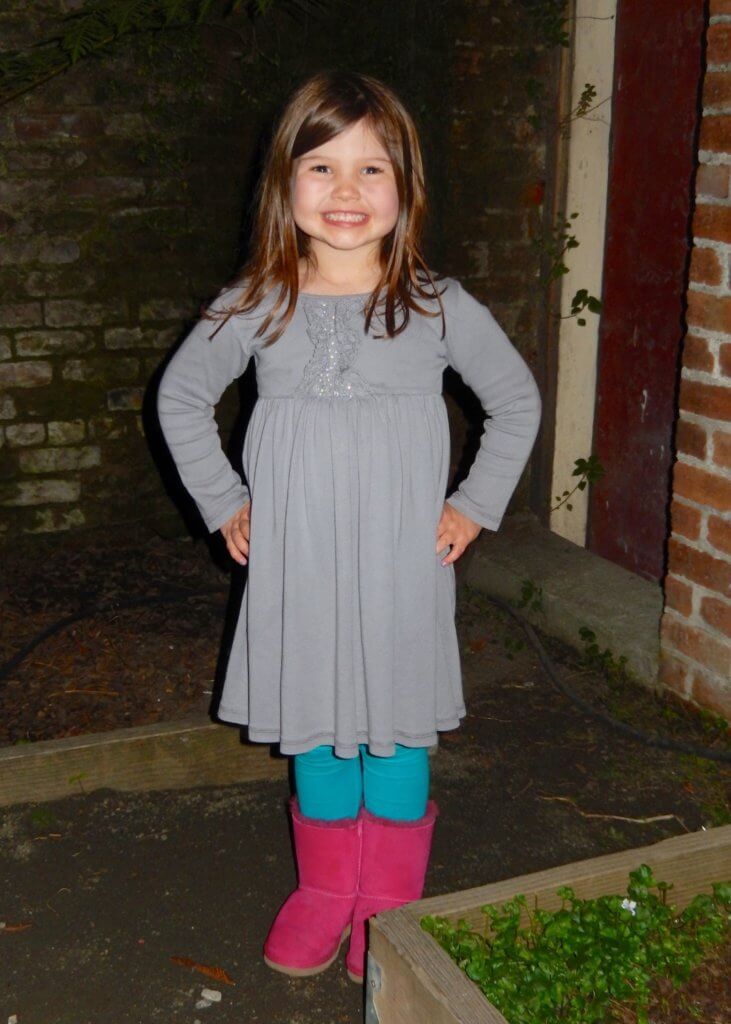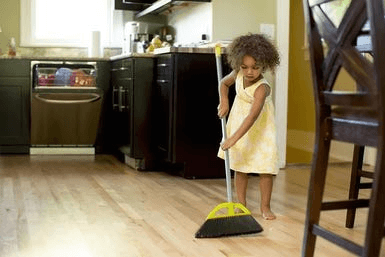How to Stop Being a Lawn Mower Parent
Teaching Kids to be Strong Problem Solvers
It started with just a few questions. “Why do I have to go to preschool? Why do you have to go to work? Why can’t I have a babysitter stay home with me?” To these, as I was bustling about the kitchen getting dinner pulled together, I answered in a matter of fact and validating way. “Preschool gets you ready for kindergarten and allows you to play with friends and grow your brain. I also miss you and wish I could be home with you. And, I love teaching my students and I feel passionate about the work I am doing.”
She wasn’t buying it.

The insisting got more intense until she was so worked up I started to wonder (and worry) especially when she said she did NOT want to go… at all. For a child that generally loved her school, this was the final sign.
“Did something happen?” From there it spilled out: during the quiet nap time, the teachers didn’t allow students to use the bathroom, and if they asked, the whole classroom was punished.
Um. What?????
In her four year old way, she described this rule, and how conflicted and uncomfortable she was with a) not being able to go to the bathroom and b) the social repercussions of any action on her part during this time. Obvi. So, clearly the solution was just to never go back.
At this point I had a few options. First, I could tell her I am SURE that is not the rule, and that with a swift (curt) email to the teacher I would have it cleared up by tomorrow and her bladder would be free. Or…
I could use this as an empowering learning opportunity.
Jane Nelsen and Lynn Lott, from Teaching Parenting the Positive Discipline Way, give this definition of empowering: “Turning control over to young people as soon as possible so they have power over their own lives.”
We all want our kids to grow up to have a long list of life skills that will help them be successful as adults.. We make this list together in my Positive Discipline classes and each time, the list looks so similar. Skills like responsible, independent, passionate, assertive, happy…these help to guide our teaching when we are trying to solve challenges with our kids. So in this moment, if I used the magic wand to make it all go away, I would have missed an opportunity to add to that skill building.
Enabling = “getting between young people and life experiences to minimize the consequences of their actions.”
~ Lott, Nelsen
Rescuing, fixing, bailing them out, doing too much for them…it all falls under that enabling category. The 10pm email to the teacher also falls in that category. You know the one, where you are so exhausted by how upset your child was and what a nightmare evening you had dealing with whatever issue happened at school that day (per your kiddo), so you take it all out on the teacher in an email to feel like you have some control.
By choosing instead to empower, I wasn’t going to abandon her, but I was going to show up with confidence in her capability. It was also going to take a little more time.
We discussed it as a family more at dinner, using curiosity questions to dig deeper. I still could not believe that it was actually the rule, (what preschool teacher does NOT want kids to use the bathroom?) yet I knew in HER mind it was her perspective and interpretation, so there really was no arguing that point. We were going to have to really play it out.
“Can’t you just talk to the teacher?” she begged me. “It’s not my problem,” I replied, “I can go to the bathroom whenever I want.” She looked at me horrified. I went on, “This feels like such a big problem to you. It feels unfair. It would feel unfair to me too! We are here to help you. Let’s practice what you can say to your teacher tomorrow.”
We called all hands on deck and she started to relax surrounded by her cheering section. She took turns being the teacher and herself in the role play, practicing how to start with a greeting and request to discuss the problem and then how to assertively state “I feel confused by this rule and it feels unfair.” Her confidence grew and by tuck in time I thought we were really in the clear. Then the panic set in.
“Mama, what if this problem is never solved?
What if it doesn’t work?”
Here, too, I wanted to just ease her mind, ensure her that everything would be ok. I also wanted to make all that time we had spent building up capability worth it. So instead I took her hand and said, “Here’s the deal. It might not be solved tomorrow. It might not work right away. And that is ok. Because when you come home, we will brainstorm another solution and practice and try something else until it is solved. I won’t give up and neither will you.”

Fortunately I did not do the drop off in the morning. I might have caved. Instead, I watched the clock and winced right around naptime, then braced myself when I went into the classroom to pick her up after work.
Unexpectedly, she came running around the corner. Her face was beaming. “Mama mama! I solved my problem!” It was THAT moment that made it allllll worth it. The pride, independence, confidence and capability shone. Priceless. Her teacher immediately joined her, falling over herself to tell me that OF COURSE they are allowed to go to the bathroom and what a misunderstanding, but how brave of my daughter to bring it up. The teachers hadn’t realized the confusion from all the students. This led to a class meeting and greater discussion. She ended with explicitly thanking me for allowing this learning opportunity.
Five years later I think of that day so often. It gave me the courage and mindset to put in the intention and energy on days I didn’t think I had it. When it would have been easier to overprotect or rescue. When I see the payoff, in my responsible, independent, happy, confident almost ten year old, I know it is worth it.
It takes courage to teach courage.
Empowering can and should look different in families, depending on ages and development and your own values. What makes YOUR little one beam with confidence? And what kind of practice do they need to get there? Is there a small step they need to learn first?
Lott and Nelsen describe these empowering responses:
- Listening and giving emotional support and validation without fixing or discounting.
- Teaching life skills.
- Working on agreements through family meetings or the joint problem-solving process.
- Letting go (without abandoning).
- Deciding what you will do with dignity and respect .
- Sharing what you think, how you feel, and what you want (without lecturing, moralizing, insisting on agreement, or demanding that anyone give you what you want).
- Sticking to the issues with dignity and respect.





Comments